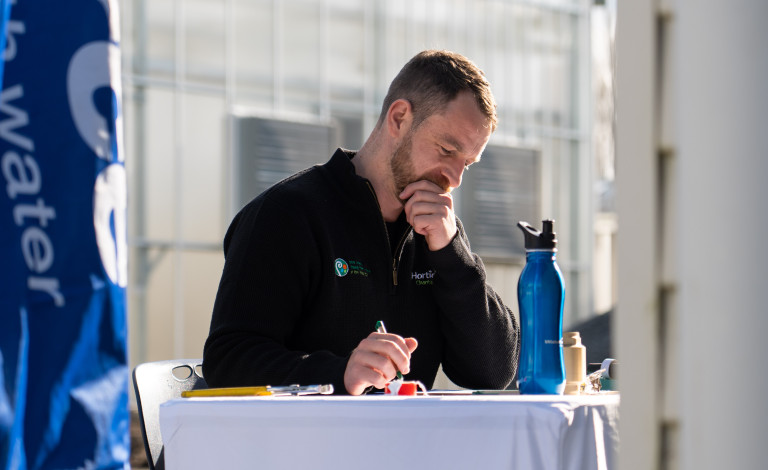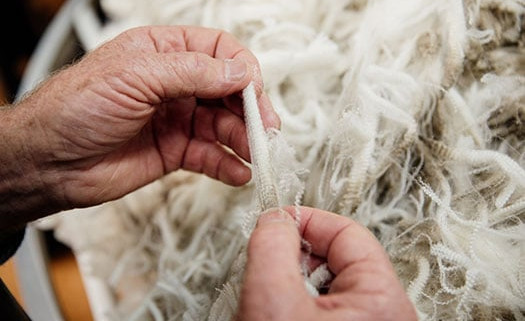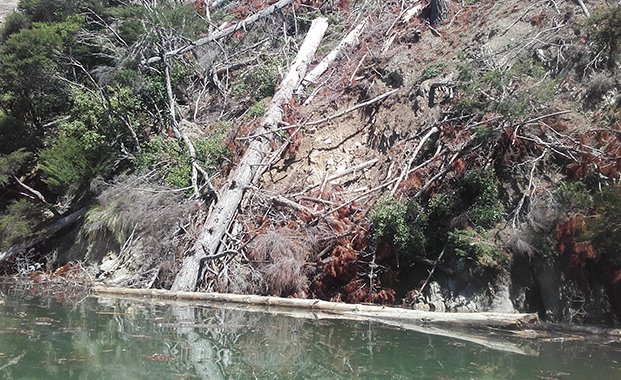Project aims to reduce agrichemical use and combat climate change
29 January 2024 | News
A Lincoln University led project is protecting forests by using the bioactive molecules from microorganisms to fight pathogens.
Researchers are developing an alternative to agrichemicals to encourage tree health and mitigate climate change.
The project, 'Unlocking the potential of microbial bioactive compounds to promote forest health', led by Lincoln University Senior Research Officer Dr Artemio Mendoza-Mendoza, was awarded nearly $1 million in the 2023 Endeavour Fund grants. Forestry expert Dr Helen Whelan, of Lincoln University, is also a key researcher in the project team.
Dr Artemio Mendoza-Mendoza examines a pine seedling.
To maintain New Zealand's $6.25 billion forestry industry, 54 tonnes of copper fungicides are used annually to fight pine pathogens. As well as creating a significant economic cost of $57 million each year, the fungicides also present potential environmental, human health and social costs.
Dr Mendoza-Mendoza said the new products being developed would offer an alternative to agrichemicals, protecting forests and reducing environmental costs.
"They are also anticipated to have high export potential, with significant financial benefits to New Zealand."
The Lincoln University research team, and their collaborators at Massey University, have already shown that microbial bioactive compounds (MCBs) isolated from plant-beneficial microorganisms can fight pathogens which cause important foliar diseases in radiata pine, such as Dothistroma needle blight (DNB) and red needle cast (RNC).
"We have already identified two MBCs that can kill the causal agents of DNB and RNC in vitro and promoted pine growth in glasshouse conditions," he said.
The project proposes to coat the molecules onto seeds and spray them onto existing trees.
"We are testing in glasshouses and then moving some assays (experimental methods for assessing the presence of a substance in living cells) into the field."
Dr Mendoza-Mendoza said plantation trials would be carried out on the West Coast from the winter of 2025 when a batch of treated seedlings were planted. They will be monitored over the last two years of the project.
He said bioactive molecules could pose an attractive alternative for fighting other tree diseases such as kauri dieback. Unlike exporting live microorganisms, the bioactive can be sold worldwide as a commercial product with fewer restrictions.
The project has strong ties with the forestry sector, via PF Olsen and Ngāi Tahu Forestry, and is supported by seed companies including Proseed Ltd NZ. It is conducted in collaboration with the University of of Canterbury, Massey University and Scion.


